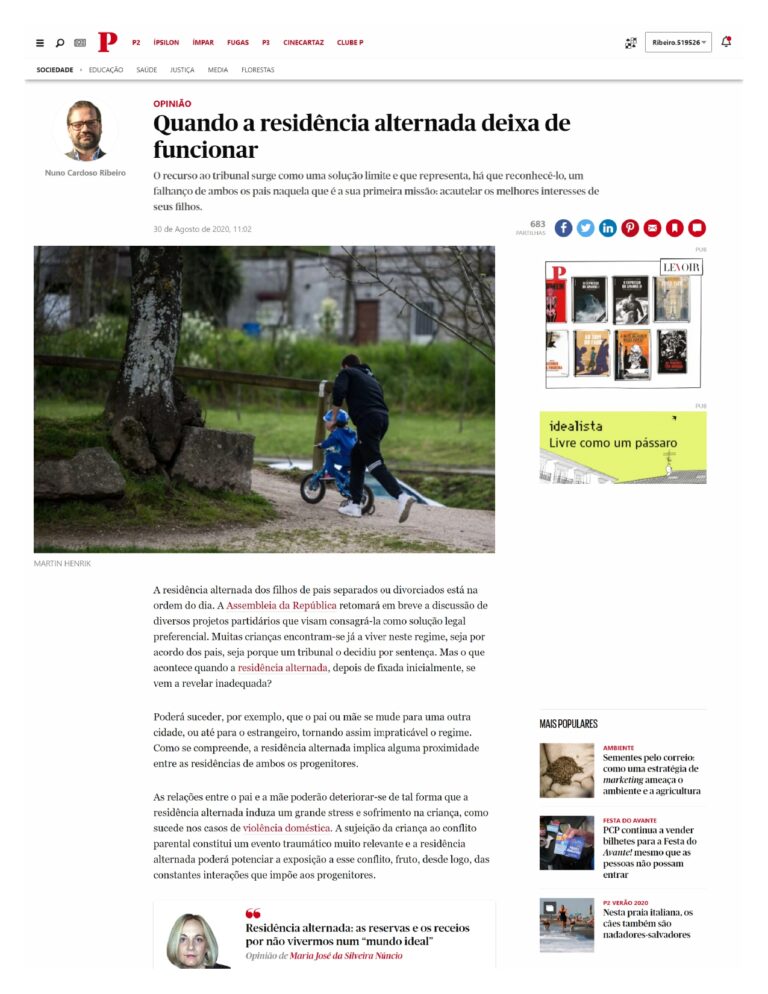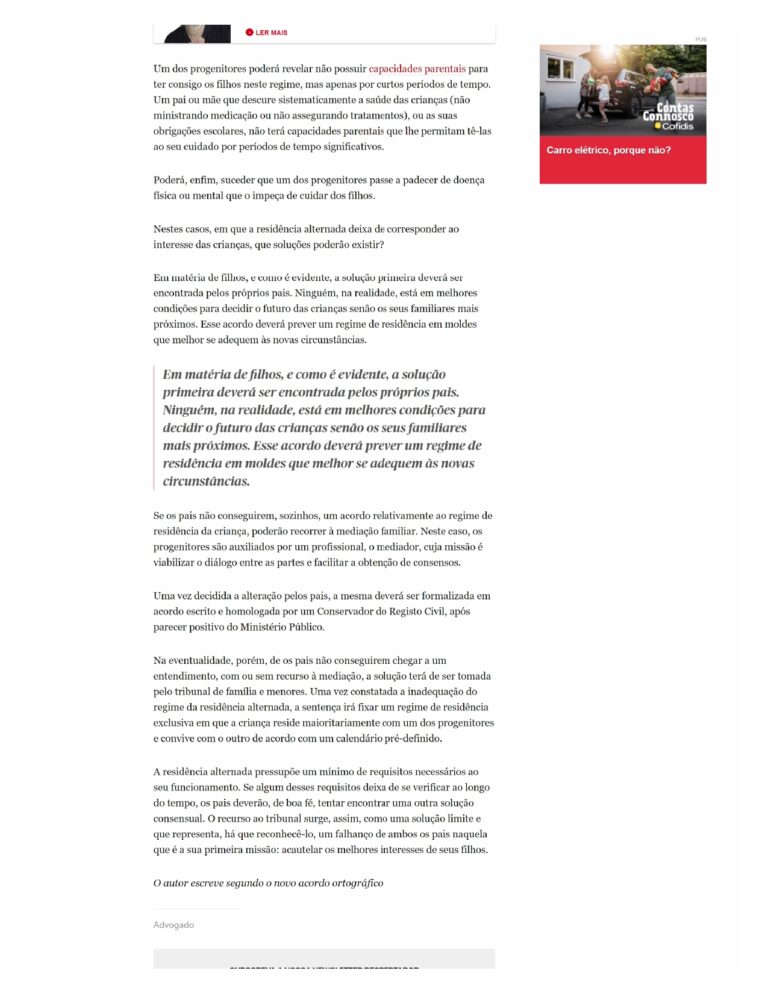Opinion article by our coordinator at Público on 08/30/2020 regarding “When the alternate residence stops working”. Read the article on Público’s website website or the translation or pdf below:
“When the alternate residence stops working
The recourse to court appears as a limit solution that represents, it must be recognized, a failure on the part of both parents in what is their primary mission: to look out for the best interests of their children.
The alternated residence of children of separated or divorced parents is the order of the day. The Assembly of the Republic will soon resume the discussion of several party projects that aim to enshrine it as the preferred legal solution. Many children are already living in this regime, either by agreement between the parents or because a court has decided so. But what happens when the alternate residence, after having been initially established, turns out to be inadequate?
It may be, for example, that the parent moves to another city, or even abroad, thus rendering the regime unworkable. As can be understood, alternated residence implies some proximity between the residences of both parents.
Relationships between the father and mother may deteriorate to such an extent that alternating residence induces great stress and suffering in the child, as happens in cases of domestic violence. The child’s subjection to parental conflict is a very relevant traumatic event and the alternating residence may increase the exposure to this conflict, as a result of the constant interactions that it imposes on the parents.
One of the parents may not have the parental skills to take the children with them in this regime, but only for short periods of time. A parent who systematically neglects the children’s health (by not administering medication or providing treatment), or their school obligations, will not have parental skills that allow them to take care of their children for significant periods of time.
Finally, it may happen that one of the parents suffers from a physical or mental illness that prevents him or her from caring for the children.
In these cases, in which alternating residence is no longer in the best interests of the children, what solutions can there be?
When it comes to children, of course, the first solution must be found by the parents themselves. No one, in fact, is in a better position to decide the children’s future than their closest relatives. Such an agreement should provide for a residence regime in a way that best suits the new circumstances.
If the parents cannot agree on the child’s residency arrangements on their own, they can resort to family mediation. In this case, the parents are assisted by a professional, the mediator, whose mission is to facilitate dialogue between the parties and facilitate consensus.
Once the parents have decided on the change, it must be formalized in a written agreement and homologated by a Civil Registrar, after a positive opinion from the Public Ministry.
In the event, however, that the parents cannot reach an agreement, with or without the use of mediation, the solution will have to be taken by the family and children’s court. Once the regime of alternated residence is found to be inadequate, the sentence will establish a regime of exclusive residence whereby the child resides mostly with one of the parents and cohabits with the other according to a predefined schedule.
Alternate residence presupposes a minimum of requirements necessary for its operation. If any of these requirements cease to exist over time, the parents should, in good faith, try to find another consensual solution. Recourse to court is, therefore, a limit solution which represents, it must be recognized, a failure on the part of both parents in what is their primary mission: to look out for the best interests of their children.”

